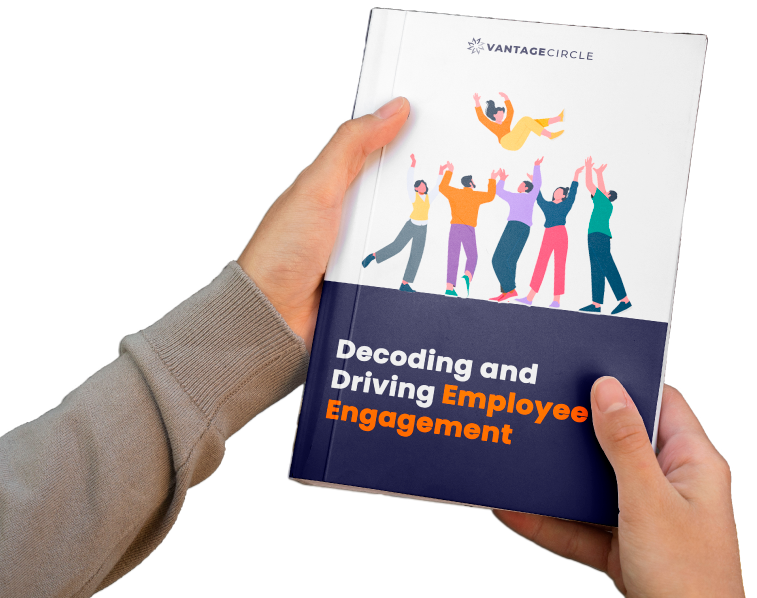How To Avoid Favoritism In The Workplace While Rewarding Employees
Playing favorites is one of the most damaging problems in any group of people.
Robert Whipple
Employee rewards and recognition programs are essential to building a happy and engaged workforce. However, if you aren’t careful, it can start breeding resentment among those employees who feel like being victims of favoritism in the workplace.
Defining Favoritism In The Workplace
When one employee receives preferential treatment over all other employees for a reason irrelevant to performance, it is a case of favoritism. It is one of those human resource issues that need to be tackled right away.
Favoritism can take place on an employer-to-employee or an employee-to-employee basis leading to hostile work environments. Sometimes, it might also lead to legal actions if an employee feels that that they are facing illegal discrimination and unfair treatment. Generally, it is the employer’s or the manager’s responsibility to detect the biases before it hampers employee morale and trust in the workplace.
Here’s What To Keep In Mind To Avoid Favoritism In The Workplace While Rewarding Employees
1. Make mutual expectations
As a manager, you will have expectations from your team members. To succeed, your team needs to know what your expectations are from them. Make sure that their responsibilities get communicated to them. This clarity of expectations will ensure that your employees' know-how and for what they can get recognized.
But most importantly, while doing this, make sure that everyone gets equal chances to deliver the best on their job.
At the same time, employees too have certain expectations that you need to know well. It requires open communication and trust so that can come to you when they can’t solve a problem. It creates transparency between different departments and authorities. It eliminates the old-school issue of seniors taking credits for everything all the time.
2. Spot great work frequently
Companies tend to neglect day-to-day wins and concentrate more on things like celebrating tenures. According to research conducted by Forbes, tenure-based rewards programs have virtually no significant impact on organizational performance. Yet, they represent 87% of all employee recognition programs. 42% of employees don’t even know about their employer’s reward and recognition program.
If you organize your recognition program once a year and recognize only a few favored employees, those instances get minutely examined. And naturally, people may feel, showing concerns favoritism in the workplace.
To avoid this, set a goal of spending an hour or two each month or a few minutes per week in applauding achievements and behaviors that are truly worthy of being recognized. Training yourself to spot these moments of great work will lead to less time spent focusing on the job and fewer people complaining.
3. Don’t hesitate to credit those who don’t go the extra mile
Going above and beyond the call of duty is sometimes not a choice for the employees because of the job roles that don’t allow them to update their actions to be more efficient. Do not hesitate to recognize these people who do their job within their skill sets.
Persuading your employees beyond their scope of responsibility isn’t an easy job. However, as a manager, you can change that. Let’s know-how.
- Know your people
Take an interest in knowing what your employees like to do after office hours, about their family members, and show them that you care. Relating to their time can help you to have an easier time relating to them professionally. Again, it will go both ways- helping your employees know what you are outside the office and remove confusions about favoritism in the workplace.
- Introduce them to the benefits
Benefits can be as simple as giving them a day off for staying up late the previous day or offering the opportunity to come late the next day. Remember, time can be as valuable as money. If you want someone to be extraordinary, let them know that these unique treatments are for all who go that extra mile and do good work.
- Appreciate in words
Periodical emails of appreciation recognizing employees or colleagues can go a long way. It will help your people realize that they will be appreciated for their hard work, no matter which department they work in.
4. Be specific about what the person did
When you express recognition, make sure that you are specific about what that person did. The focus should not be on the person. Instead, it should be on what has been achieved.
If you recognize it as, “Well done, James, you did well,” the highlight here is the name ‘James’ and not what James has done.
Instead, you can educate others what James does to earn praise by writing something like this-
“Thanks to James for the endless hours he spent on this project, for volunteering and stepping in for the extra hours this week despite having personal commitments after work. We couldn’t have done it without your help.”
5. Periodically check who has (or hasn’t) received recognition
Even if you try your best to minimize different forms of favoritism in the workplace while rewarding and recognizing, there will still be people who will miss out. They are either less likely to get noticed, or their works often get taken for granted, or they mostly work independently.
Periodically checking who has or has not received recognition recently can help you check if you missed recognizing someone deserving. Online platforms like Vantage Circle can be comparatively easier to determine who and why someone hasn’t been in a while.
However, it isn’t mandatory to recognize everyone forcefully. If you don’t think an employee is not doing a great job, do not go on to recognize just for the sake of doing it. In such cases, a conversation with the employee can be a great start over for them. Their performance might improve, and you will surely get the chance to recognize this person at your next meeting.
6. Maintaining proper rewards system elements
When you build a rewards and recognition system, you must consider several essential elements to avoid favoritism at work, legal or illegal. Those elements should ensure the ongoing success of your organization. The three most important aspects are-
- Attendance
Each person must report their work done daily on time. It will ensure that co-workers do not have to perform the leftover action by others to reach the team target.
- Accuracy
Accuracy refers extent to which a job is done correctly over a set period. In a rewards program, you must reward accuracy, measuring each person on the same scale. It will make performance evaluation easier and transparent to all.
- Productivity
It would be best if you consider the level of progress one makes towards the organizational goals. While some people easily climb up the ladder of productivity, it’s also essential to recognize those who make great efforts to achieve something. If not done, this can prove to be a big demotivator in the long run.
- Rewards Committee
Every rewards and recognition program should have a dedicated committee that can decide how to distribute the rewards to the employees. The committee must see that all the employees are included in the program and not feel left out. It should also decide on how, when, and whom they will present the rewards. It will avoid any possible deceptions that leaders are picking up employees randomly or at their own choice.
- Non-competitive rewards
Unlike competitive rewards, non-competitive rewards ensure that every employee who meets the standard performance will receive a reward. It results in a happy and justified environment bringing a significant increase in employee performances.
Do you have any other tips to keep favoritism away from your rewards program? Could you share it with us in the comments section?


















